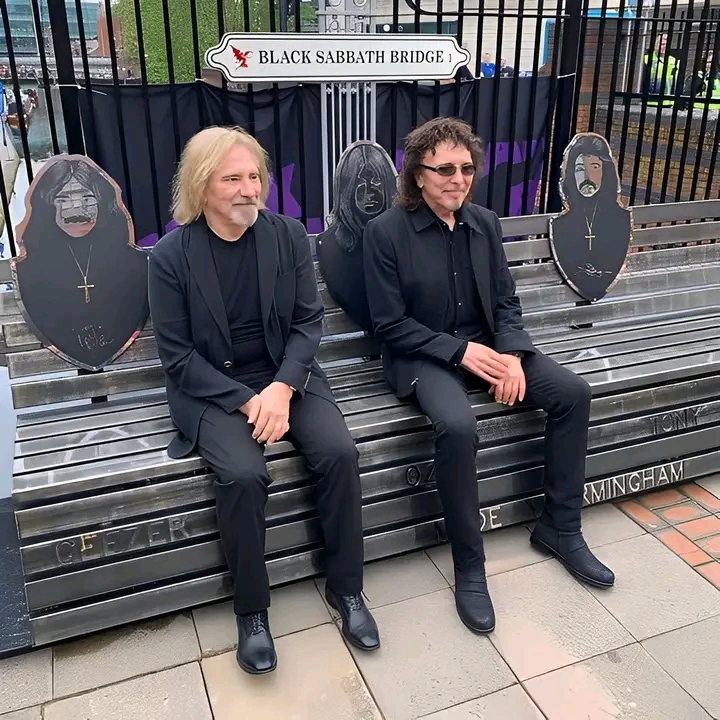From the streets of Birmingham to the world stage, few names echo louder in rock history than **Black Sabbath**. On a crisp autumn morning, the city that birthed heavy metal stood still as two of its most iconic sons — **Tony Iommi** and **Geezer Butler** — returned to the heart of their legacy. The scene unfolded at the **Black Sabbath Bridge**, a permanent monument that spans the Birmingham and Fazeley Canal, symbolizing not just a band, but a movement that redefined music.
Fans from around the world gathered, some clutching vinyl records and faded tour shirts, others simply standing in awe. It was here, decades ago, that the unmistakable sound of Sabbath first rumbled to life — a gritty, raw energy born from the industrial streets of Aston. And it was here again that Iommi and Butler, now legends, stood side by side, reflecting on a journey that began in smoky clubs and ended on the world’s biggest stages.
“This city gave us everything,” Iommi said, his voice thick with emotion. “We wanted to play music that felt real. We never imagined it would travel this far.” Butler nodded, adding, “This bridge isn’t just for us — it’s for every fan who kept the fire burning.”
As the crowd erupted into chants of “Sabbath! Sabbath!” the moment felt like a full circle — a homecoming decades in the making. The **Black Sabbath Bridge** isn’t just a tribute to four young men who changed music forever; it’s a reminder that legends can rise from the most unexpected places.
From **Birmingham’s backstreets** to stadiums worldwide, Sabbath’s thunder still roars — and now, it has a place to call home.










